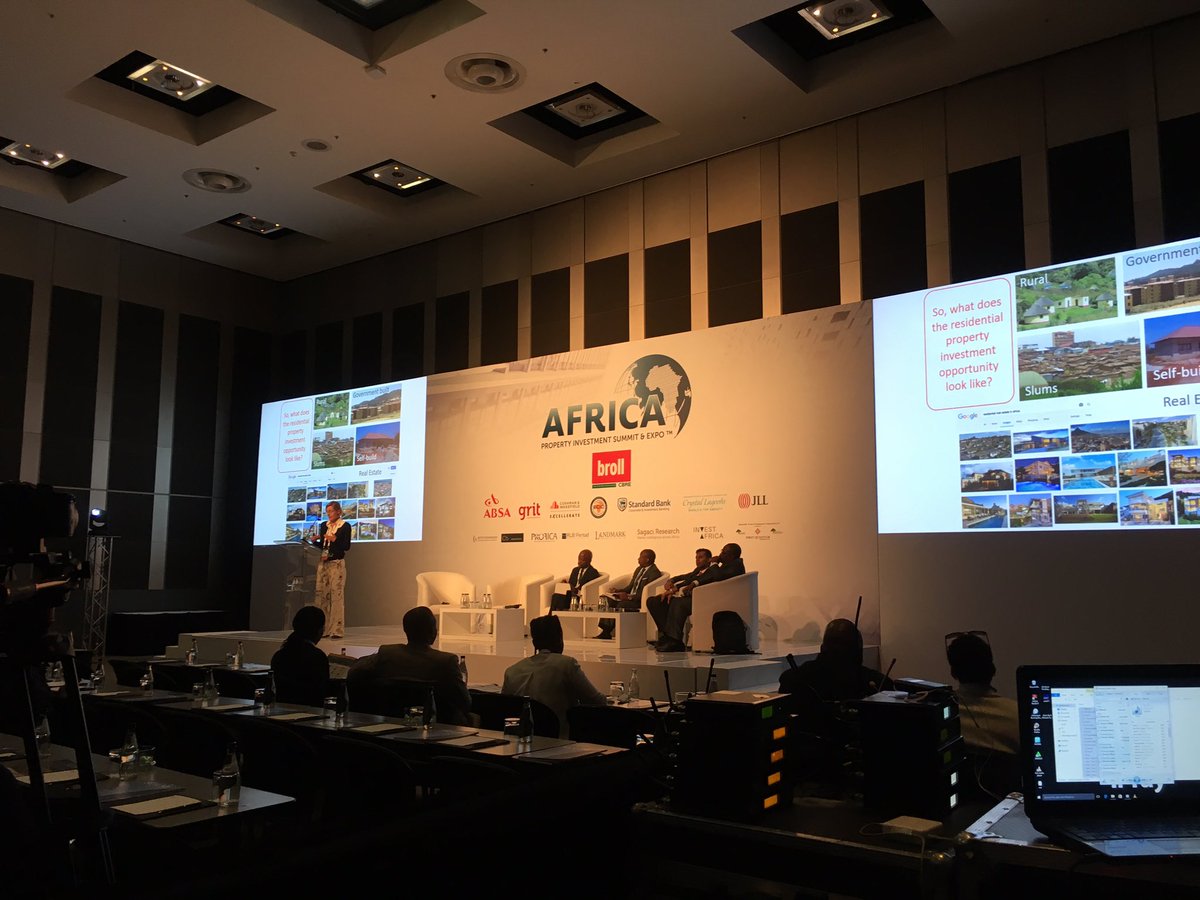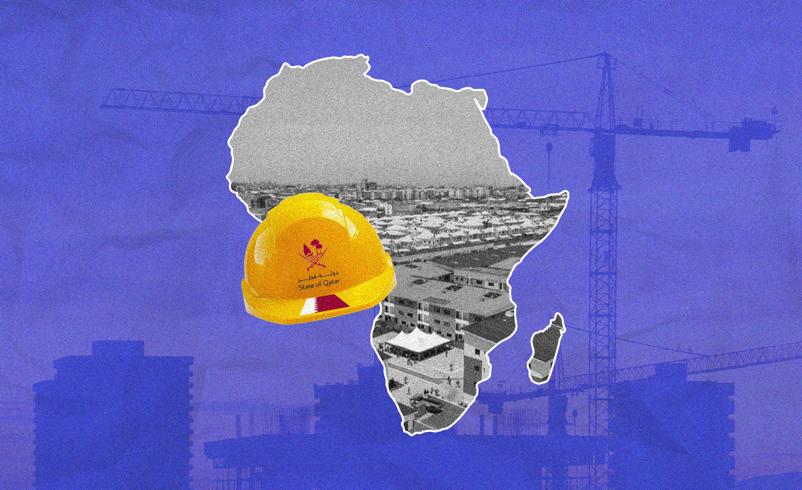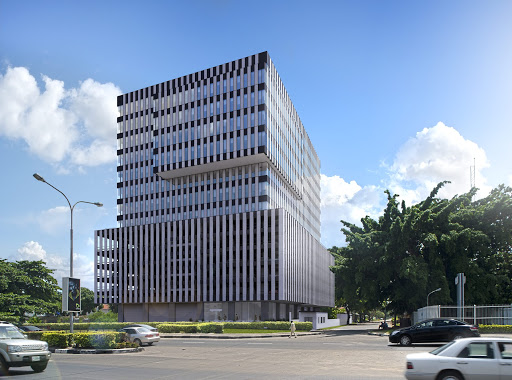#API2017: Developing Africa's New Reality
Dolapo Omidire . 6 years ago
africa
event
iap2017
nigeria
poperty
property
seminar

Share this post
Subscribe to our newsletter
The 2017 edition of African Property Investment Summit was held in the Sandton Convention Centre in Johannesburg, South Africa on the 24th and 25th of August 2017. It was an interesting assembly of 550+ delegates and speakers well represented across the property sectors from Africa and key global cities. Aside the negative effects the fall in…
The 2017 edition of African Property Investment Summit was held in the Sandton Convention Centre in Johannesburg, South Africa on the 24th and 25th of August 2017. It was an interesting assembly of 550+ delegates and speakers well represented across the property sectors from Africa and key global cities. Aside the negative effects the fall in oil prices brought to the many African economies over the past year, other market specific factors including an oversupply in the office sector, increasing political risks, contentious middle-class growth assumptions and a shallow retail tenant pool left many market participants with questions. API2017 sought to answer many of these questions and Estate Intel has summarised key points from panel discussions and presentations.
The African retail sector, a favourite topic for many, was explored in-depth during the Retail Innovation Summit where the Managing Director of Sagaci Research, Joao Terlica, made a presentation called – Formalizing African Retail: What Innovation really means for the African Retail Sector. According to Sagaci’s research, 90-95% grocery purchases are currently concluded through traditional channels. Joao explained that the process of converting the traditional/informal space into a formal one is not one that can be concluded in a short period of time. This is mainly because of the proximity and extensive reach these traditional channels have to the final consumer, which put them at a far greater advantage to many existing and pipeline retail centres. Instead of trying to speed through the formalisation process, Joao rightly suggested that value can and should be extracted from understanding, calculating and finding a way to work with it.
This discussion went further into the current challenges that shopping centre developers are facing, which need to be resolved for success to be achieved.
- The first consideration was centred around generating and sustaining foot traffic. This pointed specifically to the fact that a large population of the serviceable market across sub Saharan Africa do not have access to a car, yet many retail models involve the assumption that most customers will arrive in their vehicles, park and then shop. This assumption however, is flawed, not only because most people do not have cars, but also because public transport infrastructure in most African countries is still dysfunctional.
- The second dwelt on the importance of the growth of the shallow tenant pool. Joao’s presentation explained how crucial brand variety will be in differentiating malls and retail development products as well as the impact that a more diverse tenant portfolio can have on investor return and customer experience.
- Finally, ensuring that the assets are well-managed will also make a difference to the tenant experience and by implication – the success of the mall.
Another panel ‘The New Terrain: African Real Estate Investment Realigned’ was moderated by Tom Mundy, Head of SSA Research & Market Intelligence Group, JLL – South Africa, with Bronwyn Corbett – CEO of GRIT Mauritius, Derrick Roper, CEO of Novare Equity Partners, Klaus-Dieter Kaempfer – Head of Commercial Property Finance Africa, Barclays Africa Group and Gerhard Zeelie – Head of Real Estate Finance for Rest of Africa at Standard Bank as panelists. During this panel, the African industrial/warehousing sector was referred to as the ‘flavour of the month‘ due to the increasing interest with fresh evidence as seen through the capital that has been raised within the sector. Africa Logistics Properties raised up to $40m for their fund and market demand has responded positively as the entire first phase of their 14,000sqm project in Tatu City in Nairobi, Kenya has been leased to the contract logistics arm of leading regional logistics group, Freight Forwarders Kenya.
Part of the reason why the industrial sector has seen significant interest growth globally, is the emergence of the e-commerce sector and its significant effect on demand and rental growth. While many often see e-commerce as a threat to the retail sector, many are looking for positives at the other side of the spectrum; and growth in the industrial/warehousing sector is definitely a good knock one effect. Another positive, which involves identifying how shopping centre owners can learn from digital disruption and the close interaction online retail has with its customers was discussed during a presentation taken by Adrian Maguire of fATTi, South Africa. fATTi, do not see e-commerce as threat, instead they are looking to support mall owners with technology similar to what online retailers use to gather data on customers coming in and out of physical malls (without infringing privacy). Just as a browser can learn about a potential customer and suggest ads that follow them through various websites, mall owners can also collect information on shopper behaviour to improve and optimise shopper experience. This information, typically collected via WiFi usage, can help determine if customers are staying in the corridors or entering shops, looking through windows, count unique visitors, estimate average dwell time and identify the shops customers typically go to. This way, owners and tenants can test various strategies and determine what works best with the customers. While this does not directly address online retail’s cannibalization of the brick and mortar space (which is still an arguable phenomenon in sub Saharan Africa where brick and mortar is still under supplied), it helps mall owners learn and provide a more interesting and customised experience, similar to what they may see online.
An interesting conclusion from The New Terrain panel was the importance of the asset capital structure. This topic, which is not always spoken about in great detail, possibly because it links back to sensitive investment strategy information, is the real key to property investment success. The highly volatile nature of African investment markets require flexibility to weather economic or property market specific storms. Finding the most suitable combination of debt and equity or going further to find the right composition of local or USD debt (still keeping IRRs attractive) can easily make or break a transaction. Such changes can determine if an asset will be able to withstand longer void periods or sudden market changes like a pushback in USD rental payments. Inflexible structures with covenants that put the asset owner under pressure from the get go are unrealistic in the African context where retail and office properties often need a ramp up period of almost 2 – 3 years.
Finally, while operating or trying to operate in sub Saharan Africa, investors need to avoid taking a model from a developed market or even another sub Saharan African market without fitting or adapting it appropriately to fit the local market where it will be applied.
Related News
You will find these interesting

Linah Amondi . August 31, 2023
affordable housing
africa

Bisi Adedun . July 26, 2023
Commercial real estate in Nigeria
Glover road

Dapo Runsewe . March 14, 2023
actis
ikoyi